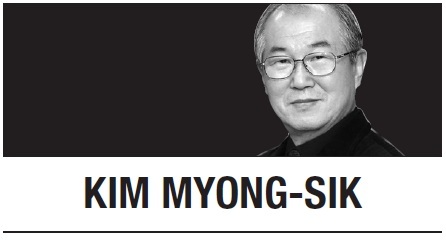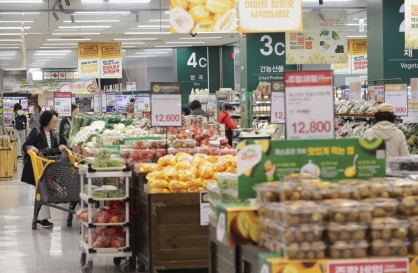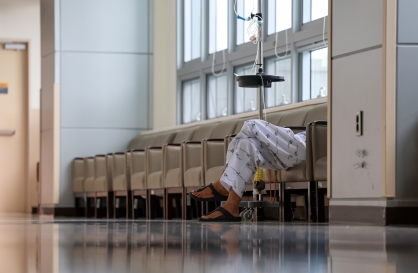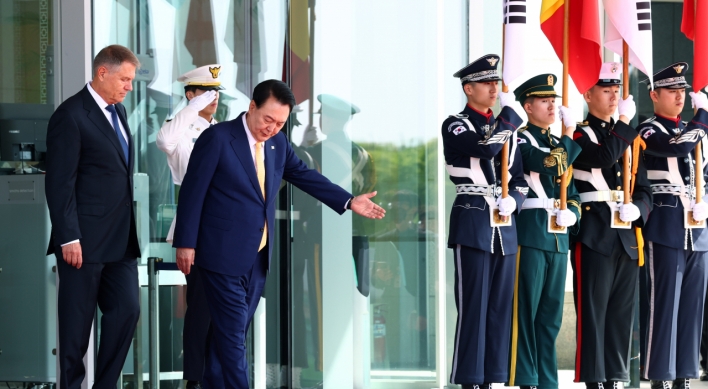[Kim Myong-sik] Questionable outcome of presidential diplomacy overseas
By Kim Myong-sikPublished : Oct. 24, 2018 - 17:17
 Fall is the cruelest season for South Korean diplomats and Cheong Wa Dae staff for foreign affairs. From the middle of September through late November, the South Korean president in any administration makes at least five rounds of overseas tours each year, driving officials crazy in making preparations of all sorts.
Fall is the cruelest season for South Korean diplomats and Cheong Wa Dae staff for foreign affairs. From the middle of September through late November, the South Korean president in any administration makes at least five rounds of overseas tours each year, driving officials crazy in making preparations of all sorts. Most important in the preparatory works of course is setting up and confirming the schedule for the president’s meetings with various VIPs of the receiving countries. Yet, the following matters are by no means insignificant:
■ Arranging the president’s exclusive interviews with major media outlets of the countries to visit, which will hopefully be published on the morning of his or her arrival
■ Making reservations for the presidential entourage at restaurants where they will dine privately
■ Establishing press centers for the horde of reporters accompanying the president, usually numbering between 100 and 200, in order to provide them with every convenience needed for covering and filing stories about the presidential tour
■ Organizing get-togethers with representative Korean residents in the destination.
President Moon Jae-in returned home Sunday from one of these fall outings. He made state visits to Italy and France, official visits to the Vatican and Denmark and attended the Asia-Europe Meeting (ASEM) in Brussels. Next month, Moon is to make his presence at the Asia-Pacific Economic Cooperation summit in Papua New Guinea and is expected to attend the East Asia Summit in Singapore.
Earlier in September, Moon made the historic visit to North Korea to meet North Korean leader Kim Jong-un for the third time this year to discuss steps for the denuclearization of the Korean Peninsula and inter-Korean economic cooperation. After resting for two days at Cheong Wa Dae, he left for New York on Sept. 23 to take part in the UN General Assembly and hold a tete-a-tete with US President Donald Trump.
On his overseas tours this year, President Moon made it his primary task to seek world leaders’ support for the ongoing process to denuclearize North Korea on the basis of his conviction of Kim’s sincerity. He particularly emphasized the need for nations to be more flexible in implementing the UN sanctions on the North with a view to bringing Pyongyang to take spontaneous steps toward dismantling its nuclear and missile capabilities.
However, as far as his conversations with European leaders are concerned, this self-imposed mission of the South Korean president can hardly be viewed as successful. While President Emmanuel Macron of France, Chancellor Angela Merkel of Germany and Prime Minister Giuseppe Conte of Italy praised Moon’s denuclearization endeavors, they strongly emphasized the importance of complete, verifiable and irreversible dismantlement on the part of the North.
At the close of the biannual ASEM session, the chair’s statement cited leaders’ call for complete denuclearization of the Korean Peninsula and made no mention of possible easing of UN sanctions. Moon met European Council President Donald Tusk, who chaired the ASEM, and European Commission President Jean-Claude Juncker, but no joint statement was issued between them. As some foreign media attributed it to differences over the Korean demand for flexibility on UN sanctions, Cheong Wa Dae officials explained differences were not about the nuclear issue but about Iranian and Ukrainian questions.
What could now be seen as the only positive outcome in Moon’s crusade for a softer attitude of world leaders toward the North was Pope Francis’ response to President Moon’s verbal conveyance of Kim’s verbal invitation to the pontiff to visit Pyongyang. Korean officials quoted the pontiff as saying he was “available” for such a tour, interpreting it as a definitely affirmative answer.
Cheong Wa Dae gave great significance to the papal visit to North Korea on the ground it could be a major step forward toward bringing the North into the international community and improving the human rights situation there. Yet, harsh criticism was leveled by opposition politicians and internet users that our president was playing the role of an agent for the oppressive leader of North Korea.
It is apparent that Moon is staking heavily on Trump’s direct dialogue with Kim, which he has brokered laboriously since he had his first talks with the North Korean leader at the truce village of Panmunjom on April 27. Signs are indicating, however, a second Kim-Trump meeting may not be held before the end of this year as a stalemate has been created by Kim’s refusal to deliver a nuclear list to the US.
During the past six months after the Panmunjom Declaration, Pyongyang showed its adherence to it by destroying nuclear test facilities at Punggye-ri and dismantling missile launchers at Dongchang-ri. Seoul, for its part, canceled annual joint military exercises with the US and faithfully began implementing military measures to reduce tension along the border, suspending reconnaissance flights over the West Sea.
In Washington, Trump speaks lavishly about Kim but is strict to Moon about his unilateral offer of economic help to the North. Moon might find himself in a catch-22 situation between the ally and foe (yes, Kim still is), being unable to reopen any inter-Korean business as long as Washington sees no evidence of North Korea taking practical steps toward eliminating its nuclear and rocket arsenal.
Meanwhile, domestic dissent on Moon’s reconciliatory path to the North is gathering heat; groundless rumors about northbound shipments of rice and other aid circulating in social media platforms reflect the negative general public sentiment on helping the North amid continuing economic doldrums in the South. If he goes on diplomatic expeditions to APEC, EAS and other events with pleas for easing North Korea sanctions, Washington’s ire will grow sharply. Trump, the whimsical leader, could turn intransigent and scrap his plan to talk with Kim again.
By and large, it is not advisable for President Moon to make too many outings overseas in the latter part of the year following the practices of past administrations. This fall, he may deeply impress Kim and even make him feel indebted with his solitary efforts to soften international restrictions on the North, but it is feared we could rather lose our friends’ trust in our leader’s fundamental sense of orientation in this time of security crisis.
Kim Myong-sik
Kim Myong-sik is a former editorial writer for The Korea Herald. He served as chief of the Korea Overseas Information Service in the 2000s. -- Ed.




![[AtoZ into Korean mind] Humor in Korea: Navigating the line between what's funny and not](http://res.heraldm.com/phpwas/restmb_idxmake.php?idx=644&simg=/content/image/2024/04/22/20240422050642_0.jpg&u=)




![[Herald Interview] Why Toss invited hackers to penetrate its system](http://res.heraldm.com/phpwas/restmb_idxmake.php?idx=644&simg=/content/image/2024/04/22/20240422050569_0.jpg&u=20240422150649)

![[Graphic News] 77% of young Koreans still financially dependent](http://res.heraldm.com/phpwas/restmb_idxmake.php?idx=644&simg=/content/image/2024/04/22/20240422050762_0.gif&u=)



![[Exclusive] Korean military set to ban iPhones over 'security' concerns](http://res.heraldm.com/phpwas/restmb_idxmake.php?idx=652&simg=/content/image/2024/04/23/20240423050599_0.jpg&u=)



